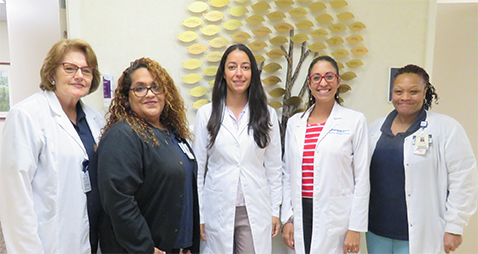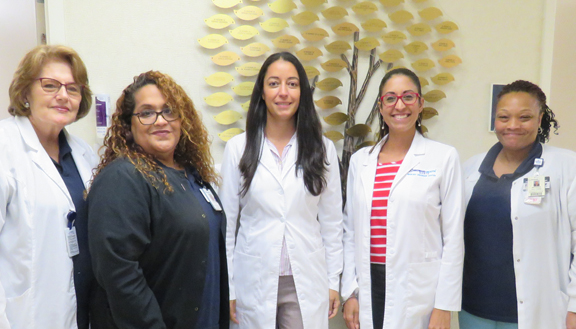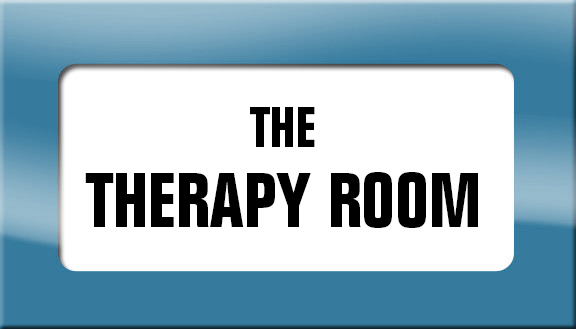
By Rachel Galvin
Memory loss is an important concern as we age. Many younger people find themselves dealing with an older parent who is starting to forget things. The question is when does forgetting something here and there turn into dementia and what do you do if you or a parent has it? These are questions best answered by the experts.
At Broward Health North, they have a Memory Disorder Center where people can turn to get some answers. The best part is that having a memory test done is free and they keep the results on file for 10 years, so you can have it retaken in later years and see the difference. The test is simple and pretty quick. The social worker or counselor asks you some questions then has you conduct some tasks that involve following basic directions. You are given a score that helps them determine your memory.
What happens if the results are not normal? Well, then they can move onto determine the next course of action, including possible other tests that need to be taken, which may include an EEG, bloodwork, imaging of the brain, etc. There are different types of memory that they can further evaluate – Executive Functioning, auditory memory, visual memory, processing speed, concentration, attention and more.
Past age 75, everyone’s process of storing and recalling information takes more time. But dementia does not happen automatically as we age.
“As we age, the brain changes,” said neurologist Hazel Wiley, DO, who said it is proteins like Amyloid-beta and Tau that damage brain tissue over time. They are still researching the reason why proteins build up.
She added, “Just because you don’t have a problem now doesn’t mean you won’t have one later. High blood pressure, diabetes, kidney problems, tobacco use for years can cause brain changes and lead to a loss of neurons.”
The most common form of memory difficulty is dementia due to Alzheimer’s. One in 10 people over 64 have Alzheimer’s disease. But there are other types of dementia – Vascular Dementia, Dementia with Lewy Bodies and others.
“I don’t think there is someone who is not affected [by dementia in some way]. For Broward County, there are 41,000 people diagnosed with Alzheimer’s alone. Dementia is a broad category. Over 80 percent of dementia is Alzheimer’s. When you have high cholesterol, blood pressure, or drink or smoke too much, it causes damage to the arteries and you can develop vascular changes,” said Wiley.
It is important to be screened early for possible changes, something that most do not do. It isn’t until the senior starts making behavioral changes that family members or friends notice, and then an assessment is made.
Melina Cedeno-Oblinger, RN, SCRN, who is a coordinator at the center, said, “Sixteen percent of seniors get assessments [routinely]. Most probably never have. Now, there’s an issue with their finances. Now, the family is noticing. The person is living alone. There is mildewed food in the refrigerator. They can’t give themselves a proper diet…”
Wiley added, “We see a lot of people in crisis. But it is a slow decline. Most are not aware or not willing [to get tested]. If a test was more routine, like a check for cholesterol, then the person would get a diagnosis earlier. They could put in place a Power of Attorney, take care of finances, and get plans in place before there is a problem. We see a lot after the fact. What we want is awareness. We want to get the person in when the problem is first starting.”
In addition to making themselves available to test people who might be experiencing memory loss, they also are there for the families who act as caregivers. They offer a free 16 hour program to provide important information. It is a four day course.
“The Care Assistance Program experts volunteer to go over information with families, including disaster planning, when they start to wander … legal and financial planning is huge, care for the caregiver (you don’t want them to be burned out), living arrangements (some will require 24 hour assistance – nursing home and/or assisted living). We run three support groups here,” said Cedeno-Oblinger.
They offer their course 10 times per year. They have day and evening classes. The next one starts on Sept. 3 in the evening. After that, they have one on Sept. 16 during the day.
“[Partcipants] can share stories and realize they are not alone. A lot of others are suffering, grieving the loss of a spouse, [or parent],” said Wiley, who can see a change in the families who attend from feeling overwhelmed to feeling more empowered with information.
“Before they felt isolated. They leave empowered and feel their parent can age with dignity. We’re trying to put away the stigma. The [patients] need to be supported and included in the community rather than isolated. It is about how to create quality of life and keep them safe,” said Cedeno-Oblinger.
“It is very gratifying. We hear the thank yous. Patients come and bring their parents and later come back when they have an issue themselves to get the same great experience,” said Wiley, who said sometimes people come back and take the class again also because they need a refresher as their parents are in later stages.
“They didn’t have to listen to the later stage information because their parents were not at that stage yet, but now they are,” said Wiley.
She said there are things they can do to benefit patients, not only medication, but things like increasing socialization and mental activities. It could be getting them to read books or work on puzzles.
“If they’re sitting and staring at a TV, it’s not going to be helpful. Depression and dementia go hand-in-hand. Socialization is a big part of improving mood. In later stages, there are other behaviors [that emerge like] agitation, paranoia, wandering. It may limit their ability to go out. We can teach caregivers how to redirect patients,” said Wiley.
The center also offers other programs, including a safe driving assessment, which measures all aspects of what goes into driving – physical and mental. It also takes them through a road test and gives them a score that measure their risk to themselves and others for being on the road. If the test comes back saying they should probably not be driving, they can let families know of alternative transportation. The test has a fee but the counseling and also the memory screening is free.
The center, which has been around since 1986, is one of 16 of its kind in Florida. For more information, call 954-786-7392 or visit www.browardhealth.org/services/neurology.








